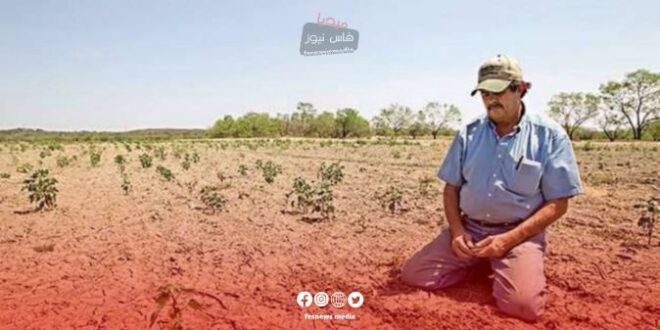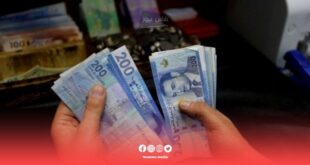Climate change is one of the major challenges facing the economies of many countries, and Morocco is no exception. The Moroccan economy is experiencing negative effects due to climate change, including increased drought, land degradation, and rising temperatures. These pose a threat to several vital economic sectors such as agriculture, water, and energy. However, Morocco is striving to confront these challenges by adopting strategies aimed at adapting to these changes and ensuring the sustainability of economic growth.
The Impact of Climate Change on Economic Sectors
Agriculture:
The agricultural sector is one of the most affected by climate change in Morocco. Studies have shown that climate fluctuations, such as prolonged droughts and rising temperatures, directly impact crop production—especially in rural areas that heavily rely on rainfall. According to a 2023 World Bank report, the agricultural sector accounts for about 14% of Morocco’s GDP and employs over 40% of the workforce, making the sector’s vulnerability to climate change highly significant.
Water Resources:
Water is among the most affected resources in the Moroccan economy due to climate change. Morocco suffers from chronic water scarcity, which has worsened due to reduced rainfall and increased evaporation. These issues impact many economic sectors, such as agriculture, industry, and energy generation. According to a report by the National Institute for Water and Climate Research (INRH), Morocco’s water needs will continue to grow, placing more pressure on water resource management.
Energy:
Morocco heavily relies on renewable energy, especially solar and wind energy. As temperatures rise, demand for electricity increases in summer, putting pressure on the national energy grid. On the other hand, renewable energy provides Morocco with an opportunity to reduce carbon emissions and enhance the sustainability of its economy in the face of climate change.
Adaptation Strategies to Climate Change
National Climate Change Adaptation Strategy:
Morocco has launched multiple strategies to adapt to the effects of climate change, including the “National Strategy for Climate Change Adaptation” aimed at strengthening resilience to future challenges. These strategies include improving water usage, promoting sustainable agricultural technologies, and increasing investment in renewable energy.
Improving Water Resource Management:
Morocco places significant importance on effective water management. Projects have been developed to increase water use efficiency and storage, including dam construction and irrigation network improvements. Additionally, the country is expanding seawater desalination projects to meet the needs of coastal and industrial cities.
Sustainable Agriculture:
In agriculture, Morocco has begun adopting sustainable farming techniques to reduce the impact of drought and improve productivity under changing climate conditions. This includes the use of drought-resistant crops, expanding irrigated land through drip irrigation, and applying smart agriculture technologies.
Renewable Energy:
Morocco is a leader in renewable energy within the MENA region. The “Noor” solar power project in Ouarzazate is one of the largest solar energy projects in the world and reflects Morocco’s commitment to reducing greenhouse gas emissions and diversifying energy sources. The Moroccan government aims to generate 52% of total energy needs from renewable sources by 2030.
Urban Climate Adaptation:
As part of the smart cities initiative, the Moroccan government aims to increase cities’ ability to adapt to rising temperatures by implementing resilient infrastructure projects—such as expanding green spaces, improving public transportation systems, and developing urban cooling systems.
International Cooperation and Climate Finance
Morocco continues to work with the international community to secure funding to address climate change challenges. At the COP22 summit held in Marrakech in 2016, Morocco committed to enhancing climate adaptation through concrete strategies supported by financial initiatives from developed countries and international financial institutions.
Conclusion
Climate change poses a significant threat to the Moroccan economy. However, the Kingdom is making substantial efforts through adaptation strategies that aim to reduce the negative impacts of these changes and ensure sustainable economic growth. By improving the efficiency of natural resource use, developing renewable energy, and enhancing agricultural and water management methods, Morocco seeks to build a more resilient and robust economy in the face of future climate challenges.
Source: Fes News Media
 فاس نيوز ميديا جريدة الكترونية جهوية تعنى بشؤون و أخبار جهة فاس مكناس – متجددة على مدار الساعة
فاس نيوز ميديا جريدة الكترونية جهوية تعنى بشؤون و أخبار جهة فاس مكناس – متجددة على مدار الساعة













